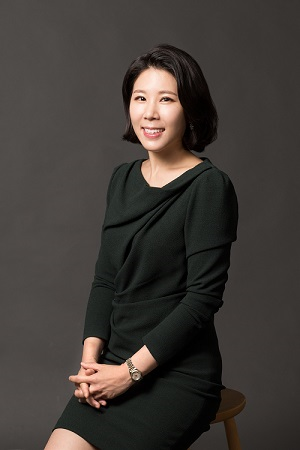people

< Professor Meeyoung Cha >
Professor Meeyoung Cha’s research investigating the correlation between the number of followers on social media and its influence was re-highlighted after 10 years of publication of the paper.
Saying that her research is still as relevant today as the day it was published 10 years ago, the Association for the Advancement of Artificial Intelligence (AAAI) presented Professor Cha from the School of Computing with the Test of Time Award during the 14th International Conference on Web and Social Media (ICWSM) held online June 8 through 11.
In her 2010 paper titled ‘Measuring User Influence in Twitter: The Million Follower Fallacy,’ Professor Cha proved that number of followers does not match the influential power. She investigated the data including 54,981,152 user accounts, 1,963,263,821 social links, and 1,755,925,520 Tweets, collected with 50 servers.
The research compares and illustrates the limitations of various methods used to measure the influence a user has on a social networking platform. These results provided new insights and interpretations to the influencer selection algorithm used to maximize the advertizing impact on big social networking platforms.
The research also looked at how long an influential user was active for, and whether the user could freely cross the borders between fields and be influential on different topics as well. By analyzing cases of who becomes an influencer when new events occur, it was shown that a person could quickly become an influencer using several key tactics, unlike what was previously claimed by the ‘accidental influential theory’.
Professor Cha explained, “At the time, data from social networking platforms did not receive much attention in computer science, but I remember those all-nighters I pulled to work on this project, fascinated by the fact that internet data could be used to solve difficult social science problems. I feel so grateful that my research has been endeared for such a long time.”
Professor Cha received both her undergraduate and graduate degrees from KAIST, and conducted this research during her postdoctoral course at the Max Planck Institute in Germany. She now also serves as a chief investigator of a data science group at the Institute for Basic Science (IBS).
(END)
-
research Unraveling Mitochondrial DNA Mutations in Human Cells
Throughout our lifetime, cells accumulate DNA mutations, which contribute to genetic diversity, or “mosaicism”, among cells. These genomic mutations are pivotal for the aging process and the onset of various diseases, including cancer. Mitochondria, essential cellular organelles involved in energy metabolism and apoptosis, possess their own DNA, which are susceptible to mutations. However, studies on mtDNA mutations and mosaicism have been limited due to a variety of technical challe
2024-07-24 -
research Machine Learning-Based Algorithm to Speed up DNA Sequencing
The algorithm presents the first full-fledged, short-read alignment software that leverages learned indices for solving the exact match search problem for efficient seeding The human genome consists of a complete set of DNA, which is about 6.4 billion letters long. Because of its size, reading the whole genome sequence at once is challenging. So scientists use DNA sequencers to produce hundreds of millions of DNA sequence fragments, or short reads, up to 300 letters long. Then the DNA sequenc
2022-05-10 -
research CXL-Based Memory Disaggregation Technology Opens Up a New Direction for Big Data Solution Frameworks
A KAIST team’s compute express link (CXL) provides new insights on memory disaggregation and ensures direct access and high-performance capabilities A team from the Computer Architecture and Memory Systems Laboratory (CAMEL) at KAIST presented a new compute express link (CXL) solution whose directly accessible, and high-performance memory disaggregation opens new directions for big data memory processing. Professor Myoungsoo Jung said the team’s technology significantly improves p
2022-03-16 -
research ‘Urban Green Space Affects Citizens’ Happiness’
Study finds the relationship between green space, the economy, and happiness A recent study revealed that as a city becomes more economically developed, its citizens’ happiness becomes more directly related to the area of urban green space. A joint research project by Professor Meeyoung Cha of the School of Computing and her collaborators studied the relationship between green space and citizen happiness by analyzing big data from satellite images of 60 different countries. Urban gre
2021-06-21 -
event Participation in the 2018 Bio-Digital City Workshop in Paris
(A student make a presentatiion during the Bio-Digital City Workshop in Paris last month.) KAIST students explored ideas for developing future cities during the 2018 Bio-Digital City Workshop held in Paris last month. This international workshop hosted by Cité des Sciences et de l'Industrie was held under the theme “Biomimicry, Digital City and Big Data.” During the workshop from July 10 to July 20, students teamed up with French counterparts to develop innovative urban d
2018-08-01